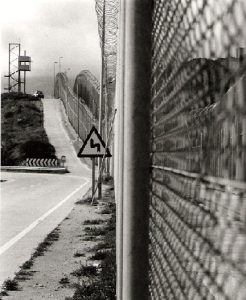Thousands of migrants die every year trying to cross into Europe. But exactly how many?
A consortium of over ten journalists managed to answer this question by joining efforts in a pan-European project that tracks the deaths of migrants seeking refuge in Europe. The Migrants’ Files project was launched in August 2013 and has been monitoring information about migrants’ location and time of death ever since.
The information is stored in a database that uses data from a network of over 500 non-profit organizations in Europe called United for Intercultural Action as well as from other NGOs and academic research projects monitoring the deaths of migrants. The project has received a journalism grant from the JournalismFund.eu in 2013.
From January 2000, over 28,000 people have died trying to cross into Europe. Their locations vary from detention centers to territories and seas. The ongoing project shows that, so far, the highest number of people dies on Libyan land and coasts and in the seas of Western Sahara. The deadliest route is crossing the Mediterranean Sea from Libya into Italy. Almost 4,000 people have died reaching the shores of Lampedusa island in the past fifteen years, with numbers increasing every year. Half of those crossing, according to Save the Children, are aged 11-17 years old.
The work of counting the dead is arduous. At the beginning of the project students at the Laboratory of Data Journalism at the University of Bologna, Italy, helped with fact checking. Nicolas Kayser-Bril, the manager of the project, explains that his team now spends hundreds of hours counting and recounting, using statistical methods to verify the data. Samples of events in the resulting database are then selected to assess error rates, which do exist, but less every time.
The tools Nicolas and his team use are OpenRefine and custom-built scrapers. More recently, they have created the collaborative data management platform Decective.io to concentrate information into one place.
Seeing the amount of migrants dying at the shores of the Mediterranean should raise another alarm call for European policy makers, according to the journalists involved in the project. The President of the European Parliament, Martin Shultz, already declared that Europe needs “a complete new system of migration”, one that would allow all countries to share the burden of refugees. But at the same time, countries bordering Africa are overwhelmed and seem confused about the way to go. Spain’s Senate is in the process of passing a law that would allow its Guardia Civil to push back migrants at the time of crossing the European border. This would mean that migrants are not checked to see whether they are in need for asylum or urgent medical care. It also means that once they are returned to the countries they transited, they are detained, but not before being beaten until arms and legs bones are broken to make sure they make no further attempts to cross the  border. Some commit suicide; others risk their lives trying again. Deaths often go unreported and lack of information about migrants crossing Libya, Sudan and Morocco makes reporting even harder.
border. Some commit suicide; others risk their lives trying again. Deaths often go unreported and lack of information about migrants crossing Libya, Sudan and Morocco makes reporting even harder.
As long as no one takes responsibility for the deaths of close to 30,000 migrants at the borders of the EU and as long as the EU member states politicians will continue to call for an end to immigration, more fences will be built and no action will be taken to stop these deaths. As Nicolas puts it: “who’s responsible? The Libyan authorities or the governments who incentivize Libyan forces to reduce the flow of refugees by any means necessary?”
The journalists working in the Migrants’ Files project hope that the numbers will persuade European governments to fully respect the 1951 Geneva Convention on refugees and grant individual rights, and asylum when needed, to those fleeing violence and persecution in their countries.


